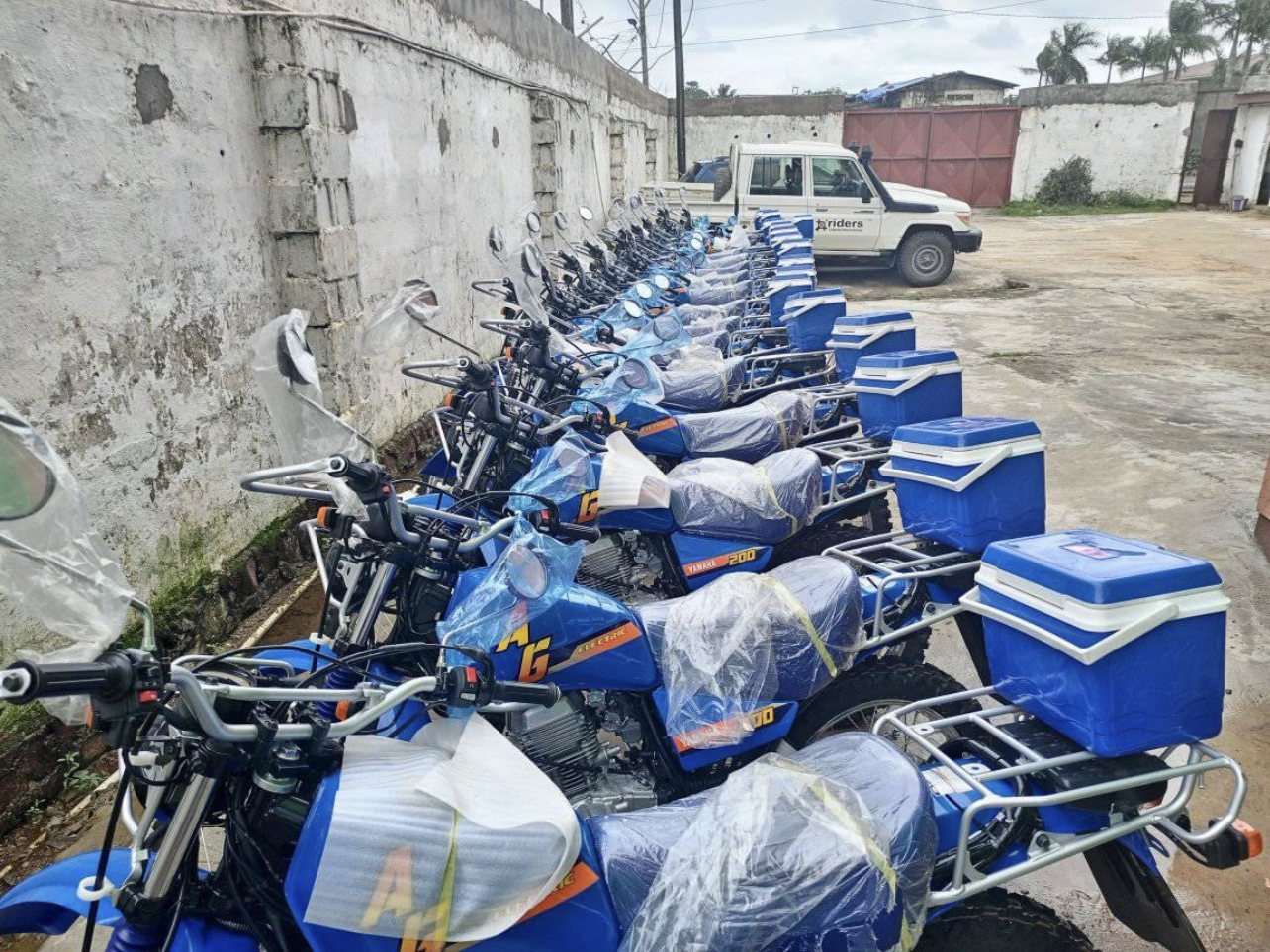info@ridersintl.org



Riders for Wellbeing International Official Website
Amongst the very many serious problems faced and endured in rural Africa, it is the almost total failure of ordinary mechanical transport. This particularly becomes a problem because of the central nature of transport in health care. Transport is a “means to an end”, it gives value (or usefulness) to the products and services, it takes them to where they are needed most hence making them valuable. For example, an effective drug or vaccine does not have value while still in a warehouse or a drug store. It becomes valuable only and useful when transported and administered to a person in need, who may be in last mile. Without reliable transport for health services to reach the last mile, for example infants fail to be immunised and suffer or die from elementary diseases that were long ago conquered in the developed world.
Fleet Management
Last Mile Distribution
When infectious diseases strike, getting a fast and accurate laboratory diagnosis is critical in stopping an outbreak from becoming a widespread epidemic. In remote areas, transporting samples from local healthcare facilities to diagnostic labs can be a risky process and needs specialised couriers. Sending sick patients to faraway labs risks passing disease to others along the way. Using healthcare workers to transport samples can leave local clinics short-staffed for long periods. Delays in getting an accurate laboratory diagnosis can lead to improper precautions or incorrect treatment – all of which give opportunities for outbreaks to spread. The lessons from COVID 19 are that testing, and more testing is key to suppressing disease transmission.
Modern day medical sciences rely heavily on pathogenic detection through laboratory diagnosis to precisely give the correct remedy to an illness. This helps in quick healing process, quick stopping of disease transmission, reduces pain and reduces negative outcomes such as drugs treatment reactions and death due to iatrogenic causes and contributes to the overall wellbeing of the patient.

Impact

Amongst the very many serious problems faced and endured in rural Africa, it is the almost total failure of ordinary mechanical transport. This particularly becomes a problem because of the central nature of transport in health care. Transport is a “means to an end”, it gives value (or usefulness) to the products and services, it takes them to where they are needed most hence making them valuable. For example, an effective drug or vaccine does not have value while still in a warehouse or a drug store. It becomes valuable only and useful when transported and administered to a person in need, who may be in last mile. Without reliable transport for health services to reach the last mile, for example infants fail to be immunised and suffer or die from elementary diseases that were long ago conquered in the developed world.
When infectious diseases strike, getting a fast and accurate laboratory diagnosis is critical in stopping an outbreak from becoming a widespread epidemic. In remote areas, transporting samples from local healthcare facilities to diagnostic labs can be a risky process and needs specialized couriers. Sending sick patients to faraway labs risks passing disease to others along the way. Using healthcare workers to transport samples can leave local clinics short-staffed for long periods. Delays in getting an accurate laboratory diagnosis can lead to improper precautions or incorrect treatment – all of which give opportunities for outbreaks to spread. The lessons from COVID 19 are that testing, and more testing is key to suppressing disease transmission.
Modern day medical sciences rely heavily on pathogenic detection through laboratory diagnosis to precisely give the correct remedy to an illness. This helps in quick healing process, quick stopping of disease transmission, reduces pain and reduces negative outcomes such as drugs treatment reactions and death due to iatrogenic causes and contributes to the overall wellbeing of the patient.
Latest News

16 New bikes added
16 new bikes were added on the 5th of July 2023 and were distributed to all the 15 counties of Liberia to replace old bikes. Motorcycle’s Life span 3 years and/or 36,000km according to manufacturer’s recommendations and maintenance schedules in normal road conditions.

Riders for Health Liberia facilitated a one-day conference on Integrated Specimen Transport
The objective of the meeting was to solicit stakeholders’ inputs and determine a suitable sustainability model for Liberia diagnostic integrated specimen transport network using the One Health Approach.

